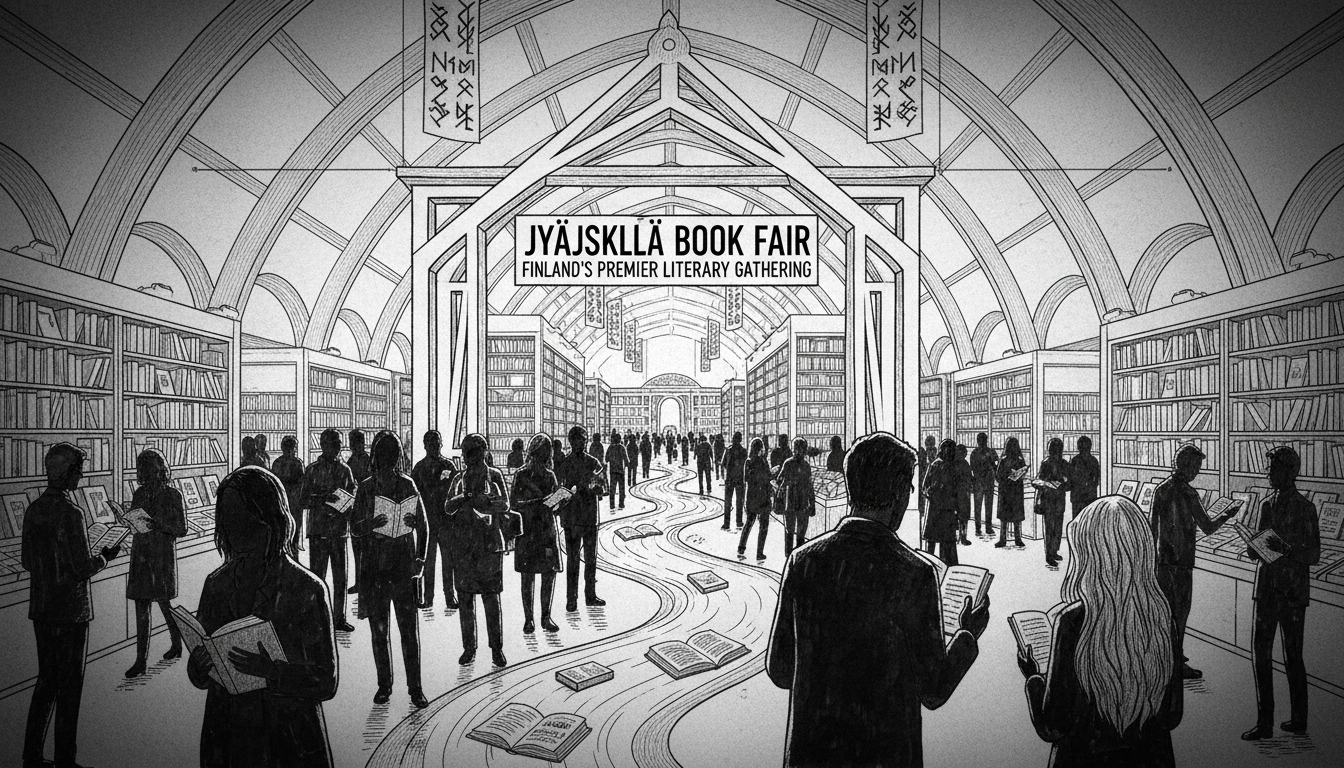The Jyväskylä Book Fair attracted a record-breaking 16,000 visitors during its recent weekend event at Jyväskylä Paviljonki. This attendance figure represents a substantial twenty percent increase compared to previous year's numbers. The literary celebration coincided with Christmas and Wine Fairs, creating a comprehensive cultural experience for Central Finland residents and visitors.
New Program Director Mari Koli expressed enthusiasm about the event's growing significance in Finnish cultural life. She stated that Jyväskylä serves as the cradle of Finnish-language civilization and the book fair has firmly established itself as Finland's second most important literary event. Koli emphasized how the fair provides a meaningful counterbalance to social media and brief digital communication that dominates contemporary life.
The six-year-old event in its current format has become an anticipated late autumn highlight for literature enthusiasts. Organizers report successfully attracting new audience segments while maintaining strong support from traditional literary circles. Both attendees and exhibitors praised the distinctive atmosphere that characterizes the Jyväskylä cultural gatherings.
This surge in literary event participation reflects broader trends in Finnish cultural consumption patterns. Despite digital entertainment options, Finns continue demonstrating strong commitment to traditional literary culture and community gatherings. The country maintains one of Europe's highest literacy rates and most active publishing industries relative to population size.
Finland's robust public library system and educational emphasis on reading create fertile ground for literary events. The Jyväskylä fair's growth mirrors similar expansion at Helsinki Book Fair and other regional literary gatherings across the country. These events serve crucial functions beyond commercial book sales by fostering community engagement and cultural dialogue.
The timing during late autumn capitalizes on Finland's cultural calendar when indoor activities become increasingly appealing. The concurrent Christmas and Wine Fairs create natural cross-promotion opportunities that benefit all participating events. This collaborative approach demonstrates effective cultural event planning that serves diverse public interests.
Finnish literary events maintain particular importance in preserving and developing the Finnish language. With approximately five million native speakers worldwide, cultural institutions play vital roles in language vitality. Events like the Jyväskylä Book Fair provide essential platforms for Finnish-language authors and publishers to connect with their readership.
Regional cultural development remains a priority in Finnish cultural policy, and the Jyväskylä event's success supports this objective. By establishing Central Finland as a literary destination, the fair contributes to balanced cultural development across the country beyond the capital region. This aligns with broader Nordic cultural policy goals of ensuring accessibility to cultural experiences regardless of geographic location.

